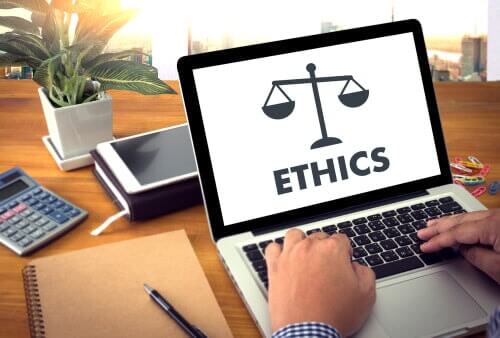
Ethics of New Age Technology and the Law
Emerging technologies offer immense potential to change the world for good," said Joe Ucuzoglu, Deloitte Global CEO.
What we see today is a world that is changing and adjusting to the turbulence brought on by new-age technology. Customers have been open to adopting the improvements that these technologies have brought forth to make our daily lives easier. By adopting tech-led innovations and being willing enough to allow the tech enablers to collect more data for customised and improvised experiences, we as consumers have played a critical role in maximising the impact of these new-age technologies.
The immediate future is all about leveraging the power of Artificial Intelligence (AI), Internet of Things (IoT), Augmented Reality (AR) and Virtual Reality (VR) to revolutionise most industries including the Legal Industry.
Businesses must learn to be good stewards of the AI they use, the 5G networks they are constructing, and a host of other technologies that are on the horizon, such as blockchain, VR, quantum computing, and so on. Technologies that are bringing about broad change and are essential to the expansion of the economy ought to be reliable. Businesses that provide technological advancements must behave responsibly. The odds are against us as understanding what must be done is not the same as understanding how to execute it.
When there are competing good(s) and competing evils, ethical quandaries occur. In terms of IT, the topic of whether it is morally right or wrong to share confidential information within a company is brought up. These days, businesses can gather data on individuals and even utilise that data for their own gain without regard to morals. Personal information is the new gold, as the saying goes.
Information technology makes it possible for users to quickly alter records, creating concerns about the veracity and accuracy of the data as was seen during the 2016 and 2020 U.S. presidential elections. The resultant division created by misinformation had a significant impact on the worldwide political and economic landscapes.
There exist a lot greater number of ethical issues concerning new-age technologies, to name a few –
- Consumer privacy
- Possibility of a bias created by AI
- Intrusive nature of technology
- Worker displacement due to AI
- Algorithms limiting exposure to information
- Weaponization of technology
- Health tracking and the digital twin dilemma
The majority of businesses use a hybrid stack, which combines owned and third-party technology. As a result, confusion often arises regarding who is in charge of governance, the use of big data, cybersecurity issues, and the management of personally identifiable information (PII). Who is truly in charge of making sure data is protected? Do you have any liability if credit card information is compromised if you use a third party to provide software that processes payments?
The law too is not entirely silent upon technology and its perils from a moral, ethical, or legal standpoint. It also makes acts like hacking, data theft, spreading of computer viruses, identity theft, defamation (sending offensive messages), pornography, child pornography, and cyber terrorism criminal offences, and gives legal validity to electronic contracts and recognition of electronic signatures.
However, not much can be done unless businesses themselves adopt a mindset that recognises that all parties collectively bear responsibility and ensure that a moral and ethical relationship exists between technology and its user. This can be further facilitated by keeping the below-mentioned points in mind –
- Ensure respect for employees and customers
- Make moral use of data and resources
- Ensure responsible adoption of disruptive tech
Dario Gil, IBM's senior vice president and director of research, said at the Vatican "We need all the help we can get" to make sure AI is "aligned with fundamental human values without leaving anyone behind,"
In the end, we need to foster a culture of accountability inside the digital industry. We will observe better governance and fair use of data if the information technology workers and industry titans realise that they are accountable for the safe and ethical use of technology.
Author: Varun Bhatia, Co-Founder of 3NServe.

Also read top viewed Ai Legal article: The Role of AI in Legal Research.






